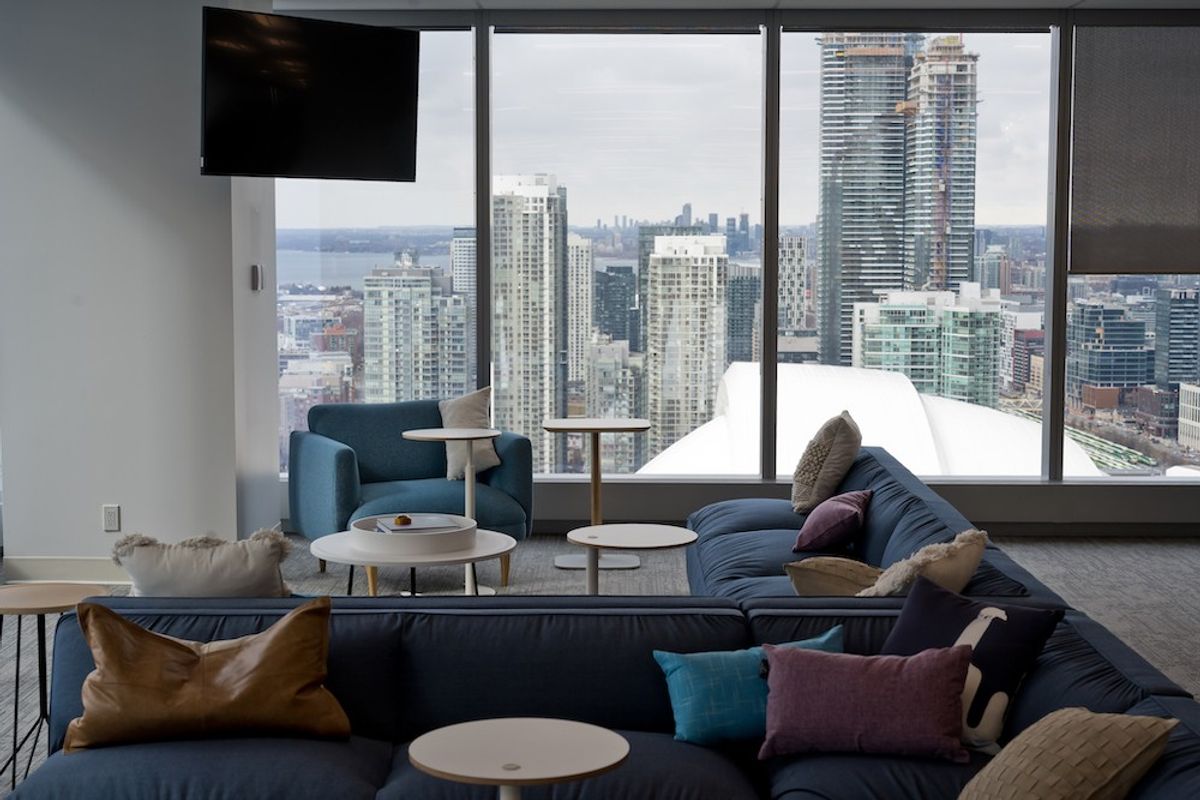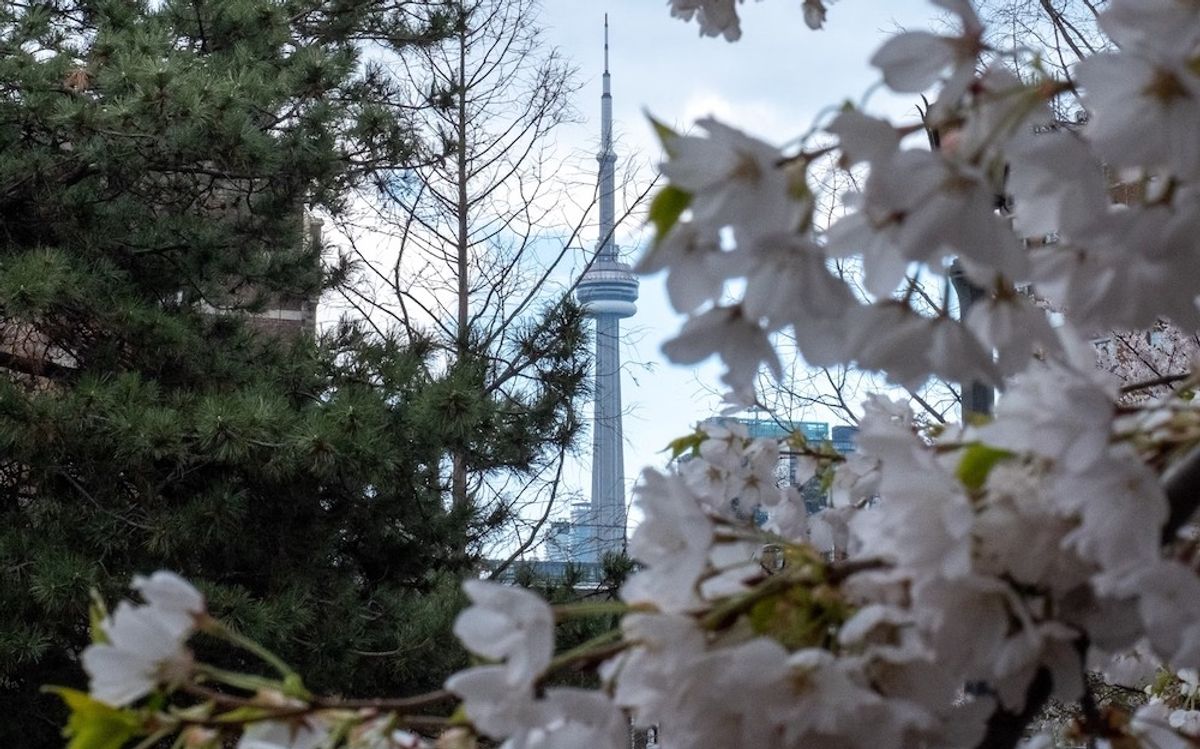Our weekly roundup of real estate news from Toronto, Canada, the U.S., and around the world ending Oct 13, 2017.
Toronto
Toronto housing price ‘correction’ eases: Report (The Toronto Star)
The chill of Ontario’s new housing policies appears to have passed, with signs that Toronto real estate is recovering, according to a new report.
In fact, some corners of the GTA market are showing a return to the bidding wars that were commonplace only last spring, says the third-quarter report from Royal LePage.
Ryerson report says Toronto needs far more new rental apartments (Metro News)
The Toronto area needs 8,000 new rental units a year — more than four times the number it built last year — to restore the region to a healthy vacancy rate.
It also needs to wean itself from a growing reliance on the private condos that represent about a third of rentals in the city, says a report published Thursday by the Ryerson City Building Institute and Evergreen, an urban sustainability charity.
Rental squeeze tighter in 3rd quarter, report says (The Toronto Star)
Reticent home buyers, who are staying in their apartments longer, have helped push up Toronto region condo rents 10 per cent in the third quarter compared to the same time last year.
The supply of smaller apartments also dwindled during that period, according to a third-quarter study by real estate market research company Urbanation.
Canada
Sears’ real-estate exodus will hit the hardest in small-town Canada (Financial Post)
The downside of a Sears Canada windup appears to be minimal for some of Canada’ largest retail landlords, but the story could end up being a lot different in small towns where retail tenants are hard to find.
Ed Sonshine, chief executive of RioCan, the country’s largest real estate investment trust, says Sears is only about 0.5 per cent of his company’s revenue and he expects to be able to lease the space to other tenants, probably at higher rents.
Montreal Carves Out an Enviable Place Next to Canada's Two Largest Real Estate Markets (Canada Newswire)
The Royal LePage House Price Survey1 released today showed that the residential real estate market in the Greater Montreal Area experienced strong price increases in the third quarter of 2017, across all main neighbourhoods and property types for the third consecutive quarter. The aggregate price of a home increased by 6.6 per cent year-over-year during the quarter to $384,055.
When broken down by housing type, the median price of a standard two-storey home in the Greater Montreal Area rose by 7.3 per cent year-over-year to $483,213, while the price of a bungalow saw a more moderate increase of 4.5 per cent to $299,276. Meanwhile, the median price of a condominium increased by 6.8 per cent year-over-year to $311,634.
British Columbia eyes ‘all options’ to cool Vancouver housing market, finance minister says (The Toronto Star)
Vancouver’s million-dollar home prices aren’t just straining buyers, they’re holding back investment and businesses, said British Columbia’s finance minister, vowing to look at every option on the table to cool the market.
“It’s become a bigger issue — it’s become an economic issue for companies that can’t find opportunities to retain and attract employees,” Carole James, whose New Democratic Party-led government took power in July, said in an interview Tuesday at Bloomberg’s headquarters in New York. “That’s critical to companies looking to invest.”
USA
Does American dream still include owning a home? 33% in Philly region say no (The Inquirer)
Tradition tells us the American Dream means a single-family home with a manageable mortgage for your growing family. But with rising student debt making saving for a down payment nearly impossible for an entire generation, a change to the dream may not be surprising.
Researchers at rental firm Zumper have been digging into the city-level data from its Annual Renter Survey, crunching data from all 50 states and D.C. to analyze Americans’ plans for the future, level of financial hardship, and thoughts on the American Dream. Nationally, 31 percent of respondents said they didn’t believe home ownership should make the cut in 2017. In the Philadelphia region, 33 percent of us agree.
U.S. Office Market Success More Linked To Tech Sector Growth Than Ever (World Property Journal)
According to Cushman & Wakefield, a strong tech sector and the effects of a robust construction pipeline influenced U.S. office fundamentals during 2017's third quarter.
"More and more, the office market's fortunes in 2017 are linked to the rise of the tech sector," said Cushman & Wakefield's Revathi Greenwood, Head of Research, Americas. "In 2016, Seattle was the only technology hub to rank in the top 10 cities for space absorption. To date in 2017, the top 10 cities for office absorption included Santa Clara, Brooklyn, Seattle, Raleigh/Durham and San Diego. These five tech-centered markets each have seen more than 1.0 million square feet (msf) in space absorption - with Santa Clara reaching nearly 3.4 msf."
International
Property tycoon tops China's rich list (CTV News)
HONG KONG - Property tycoon Xu Jiayin has vaulted to the top of a Chinese rich list after his wealth quadrupled, knocking Wang Jianlin off his longtime position at No. 1.
The Hurun Report, China's best-known list of its wealthiest people, estimated that wealth held by Xu, founder of developer Evergrande, surged to $43 billion, moving him up nine places from last year.
Real Estate Advertising Annual analyzes major markets in flux (Market Insider)
Major companies are fighting for real estate advertising dominance in four countries --- the U.S., U.K., France and Australia --- with millions of dollars of profits hanging in the balance, a new report from the AIM Group shows.
The 2017 Real Estate Advertising Annual covers pitched battles between Zillow and Move Inc. in the U.S.; Rightmove and Zoopla in the U.K.; Schibsted's LeBonCoin vs. Axel Springer's SeLoger in France, and RealEstate.com.au vs. Domain in Australia. Analyses of those markets lead off the 95-page report, released this week.
Japanese Outbound Real Estate Investment Spikes 23 Percent in 2017 (World Property Journal)
According to CBRE's Japanese Outbound Investment Report for the first half of 2017, outbound Japanese real estate investment rises 23% year-over-year to $1.3 billion, development investment activity was also brisk, and indirect property investment via funds is set to increase in the coming year.





















